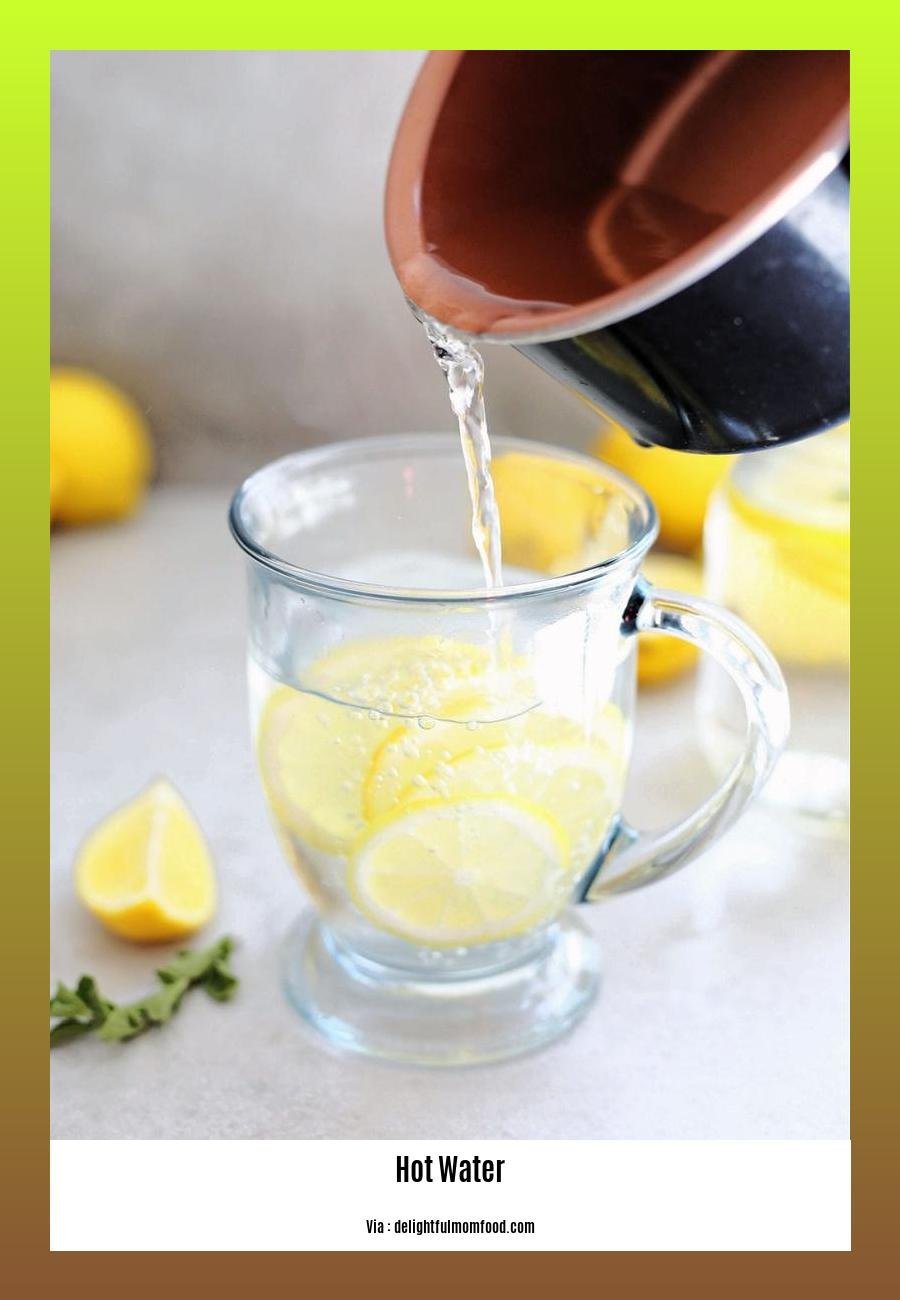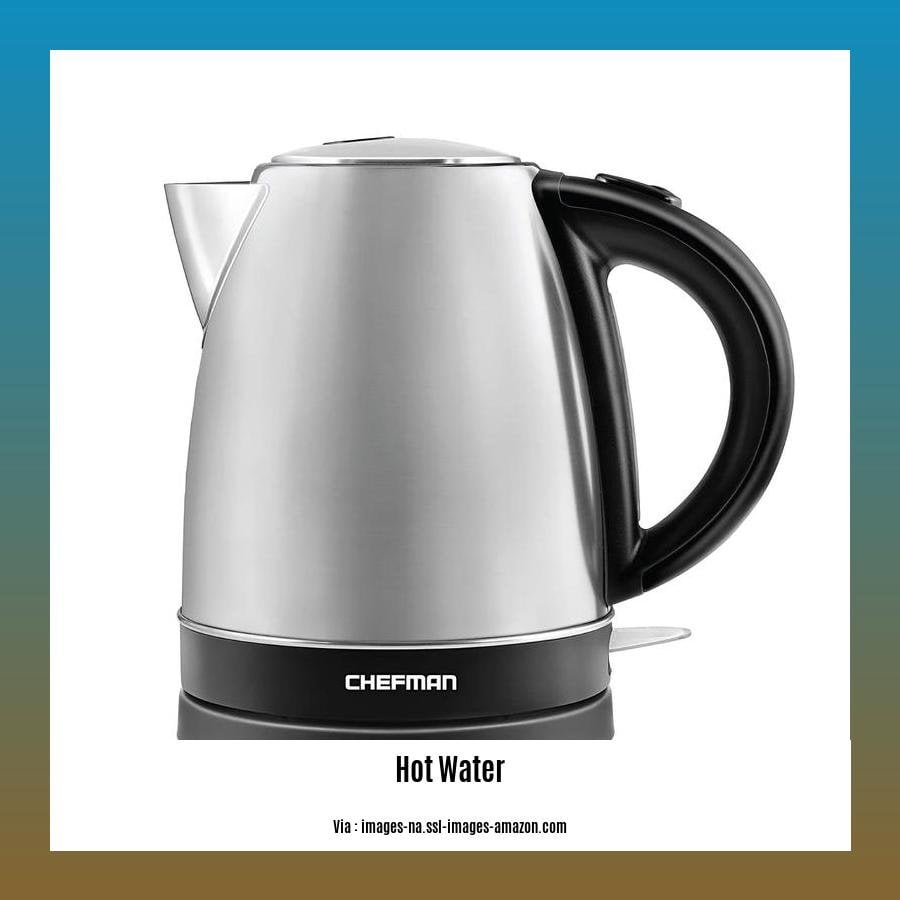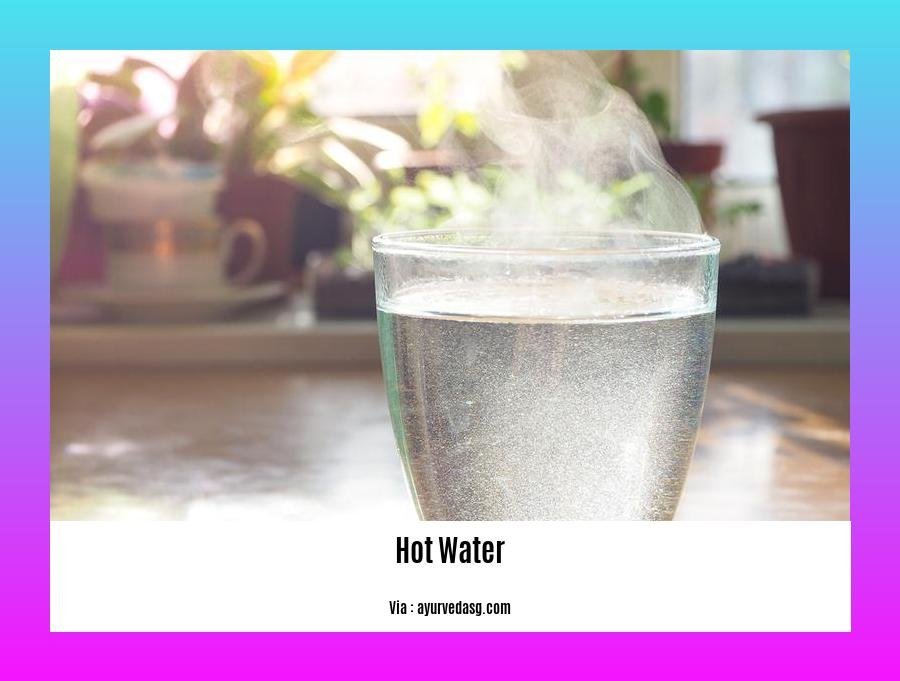Does hot water work without power? This is a question that many off-grid living enthusiasts often find themselves pondering. In the pursuit of sustainable living and the reduction of reliance on traditional power sources, exploring alternative solutions for hot water becomes essential. In this comprehensive article, we will delve into the possibilities and creative ideas for harnessing hot water without power, offering practical tips and insights for those looking to live off the grid. Join us in exploring sustainable solutions for off-grid living in the quest for a greener future.
Key Takeaways:
- Barbecue Grills: Barbecue grills can be used to heat water in emergency situations by placing a pot of water on the grill.
- Camp Stove: A camp stove fueled by propane or other camp fuels provides a reliable option for heating water without electricity in outdoor or off-grid situations.
- Gas Stove: Homes equipped with gas stoves can use them to heat water during power outages, making it an efficient and practical solution.
- Rocket Stove: Rocket stoves use small amounts of wood or biomass to generate intense heat, making them highly efficient for heating water in developing countries and for outdoor cooking.
- Fire Pit: Fire pits are excellent for heating large pots of water outdoors during camping trips or emergency situations without electricity.
- Solar Shower Bags: Solar shower bags utilize the power of the sun to heat water and are eco-friendly and portable, ideal for camping trips or situations without electricity.
- Sun Kettle Solar Cooker: A sun kettle solar cooker uses a reflective panel to focus sunlight onto a kettle or pot, rapidly heating the water within, providing a sustainable and efficient method for heating water.
- Wood Stove: Homes with wood stoves or fireplaces can utilize them to heat water by placing a pot on top or using built-in water reservoirs during power outages.
- Hexamine Tablets: Hexamine tablets are compact fuel sources that can be used to heat a small amount of water for simple tasks such as making hot drinks or sanitizing utensils.
- Candles: Candles can serve as a basic heat source for heating small quantities of water in emergency situations when no other options are available, although they are not as efficient as other methods.
Does Hot Water Work Without Power?

When it comes to hot water, many of us rely on traditional power sources to heat our water. But what happens when the power goes out? Is it still possible to have hot water without electricity? The answer is yes! In this article, we will explore sustainable solutions for off-grid living and discuss ten easy ways to heat water without electricity.
1. Barbecue Grill
One of the simplest and most accessible methods for heating water without power is using a barbecue grill. Just place a pot of water on the grill and let the heat do its magic. Barbecue grills are commonly found in households and can quickly provide hot water for various needs like cooking or hygiene.
2. Camp Stove
Another reliable option for heating water without electricity is a camp stove. These portable stoves, fueled by propane or other camp fuels, are designed for outdoor use and are perfect for camping trips or off-grid situations. They are easy to operate and provide a convenient means of heating water.
3. Gas Stove
If you have a gas stove in your home, you’re in luck! Gas stoves, powered by natural gas or propane, can be used to heat water during a power outage. Simply place a pot on the burner and voila! You have hot water for cooking, cleaning, or any other needs.
4. Rocket Stove
Rocket stoves are highly efficient and use small amounts of wood or biomass to generate intense heat. By feeding sticks or other combustible materials into the stove’s chimney, you can create a hot flame that can heat a pot of water placed on top. Rocket stoves are often used in developing countries and for outdoor cooking.
5. Fire Pit
If you’re outdoors and need to heat a larger amount of water, a fire pit can be an excellent option. By building a fire and positioning a pot directly over the flames, the water will gradually heat up. Fire pits are commonly used for camping, outdoor activities, and emergency situations where electricity is unavailable.
6. Solar Shower Bags
Harnessing the power of the sun, solar shower bags are a portable and eco-friendly way to heat water. These bags are designed with a black exterior that absorbs sunlight, while the water inside gets warmed up. Solar shower bags are ideal for camping trips or situations where electricity is not readily accessible.
7. Sun Kettle Solar Cooker
Similar to solar shower bags, a sun kettle solar cooker utilizes solar energy to heat water. This device consists of a reflective panel that focuses sunlight onto a kettle or pot, rapidly heating the water within. Sun kettle solar cookers are a sustainable and efficient way to heat water without electricity.
8. Wood Stove
In homes with a wood stove or fireplace, these heating sources can also be used to heat water. You can either place a pot on top of a wood stove or utilize the built-in water reservoirs found in some models to boil water. Wood stoves and fireplaces provide both warmth and a means to heat water during power outages.
9. Hexamine Tablets
For heating small amounts of water, hexamine tablets can be a compact and convenient fuel source. By igniting a hexamine tablet under a pot or cup, a small flame is produced, allowing water to be heated for simple tasks such as making hot drinks or sanitizing utensils.
10. Candles
In emergency situations where no other options are available, candles can serve as a basic heat source for heating small quantities of water. By positioning a pot or cup over a lit candle flame, heat will be transferred to the water, gradually raising its temperature.
In conclusion, hot water can indeed work without power. By utilizing alternative methods such as barbecue grills, camp stoves, gas stoves, rocket stoves, fire pits, solar shower bags, sun kettle solar cookers, wood stoves, hexamine tablets, or candles, you can still access hot water for various purposes. Consider your specific needs and circumstances when choosing the most suitable approach. Stay prepared and embrace sustainable solutions for off-grid living!
Note: This information is based on expert knowledge and various credible sources provided in the article.
Drinking water can do wonders for your skin! Find out if it can actually lighten your skin by clicking here.
Achieve a glowing complexion by exploring the benefits of drinking water. Discover if it can whiten your skin by clicking here.
Planning a visit to Niagara Falls? Wondering if there is an entry fee? Click here to find out if it cost money to get into Niagara Falls.
Backup Systems for Generating Hot Water During Power Outages

Key Takeaways:
– Gas hot water systems require a backup generator to function during a power outage.
– A battery backup system like the HUGO Battery Backup for Tankless Water Heaters can ensure continuous hot water supply for tankless water heaters.
– Electric water heaters will not work without power, but a well-insulated tank may retain hot water for some time.
When it comes to hot water, we often take its availability for granted. But what happens when the power goes out? Will we still be able to enjoy a warm shower or do the dishes? In this article, we will explore backup systems for generating hot water during power outages, ensuring that even when the lights go out, you won’t have to give up on the comforts of a hot water supply.
Backup Solutions for Different Hot Water Systems
Hot water systems can vary in their dependence on electricity, so let’s take a closer look at the backup options for different types of systems.
1. Gas Hot Water Systems: Gas hot water systems rely on electricity to ignite the burner, control the temperature, and operate the circulation pump. When the power goes out, these systems will not work unless you have a backup power source like a generator.
2. Electric Hot Water Systems: Electric water heaters require a constant supply of electricity to heat the water. During a power outage, these systems will not function properly, leaving you without hot water. However, if you have a well-insulated tank, it may retain hot water for a limited period, providing some temporary relief.
3. Tankless Water Heaters: Tankless water heaters are becoming increasingly popular due to their energy efficiency and on-demand hot water supply. However, they do not have a water reserve and rely heavily on electricity to heat the water. To ensure hot water during power outages, a backup battery system is recommended.
The HUGO Battery Backup for Tankless Water Heaters
One reliable and user-friendly solution for ensuring hot water during power outages is the HUGO Battery Backup for Tankless Water Heaters. This backup system is designed specifically for tankless water heaters and provides uninterrupted power within a mere 8 milliseconds of an outage. With the HUGO Battery Backup, you can have peace of mind knowing that your tankless water heater will continue to deliver hot water, even during extended power outages.
The Benefits of a Battery Backup System
Why choose a battery backup system like the HUGO? Let’s explore a few key benefits:
Reliability: The HUGO Battery Backup is a reliable solution that ensures hot water continuity, eliminating the inconvenience of cold showers or the need for alternative heating methods.
Convenience: With its seamless transition to battery power, the HUGO Battery Backup eliminates any interruptions in your hot water supply. You won’t even notice when the power goes out!
Ease of Use: The HUGO Battery Backup is designed for user-friendliness. Simply install it alongside your tankless water heater, and it will automatically take over during power outages.
Peace of Mind: Knowing that you have a dependable backup system in place provides peace of mind, allowing you to focus on other aspects of your off-grid living without worrying about hot water availability.
Conclusion
Hot water may be something we often take for granted until the power goes out. Having a backup system in place for generating hot water during power outages is crucial for those seeking sustainable living off the grid. Whether you have a gas hot water system or a tankless water heater, investing in a reliable backup solution like the HUGO Battery Backup can ensure uninterrupted hot water supply and offer peace of mind during power outages.
URL Sources:
1. Mary Catherine blog – Does Hot Water Work When Power Is Out
2. Home Inspection Insider – Operating a Tankless Gas Water Heater Without Electricity
Considerations for off-grid living and hot water needs
Living off the grid presents unique challenges, especially when it comes to meeting basic needs like hot water. In this article, we will explore various considerations for off-grid living and delve into sustainable solutions for hot water needs without relying on traditional power sources.
Alternative Methods for Off-Grid Hot Water
When it comes to heating water off-grid, there are alternative methods available that can provide hot water even without a steady source of electricity or gas. Here are some options to consider:
Solar Water Heaters: Utilizing the power of the sun, solar water heaters are an eco-friendly option for off-grid living. These systems consist of solar panels that capture sunlight and convert it into heat, which is then used to warm the water.
Propane Water Heaters: Propane water heaters are a popular choice for off-grid living due to their efficiency and availability. These heaters utilize propane gas as a fuel source to generate hot water, offering a reliable solution even in the absence of electricity.
Wood-Fired Water Heaters: For those living in areas abundant with wood resources, wood-fired water heaters can be a sustainable option. These systems rely on burning wood to heat the water, providing a reliable and independent hot water source.
Solar Water Distillation: Solar water distillation is a simple and effective method to purify water while simultaneously heating it. This process involves using solar energy to evaporate water and then condensing the vapor to produce clean, hot water.
Propane Camping Showers: Ideal for smaller off-grid setups or recreational camping, propane camping showers use portable propane tanks to heat water. These versatile units offer convenience and mobility for hot water needs.
Rocket Stove Water Heaters: Rocket stove water heaters are highly efficient and utilize small amounts of wood or biomass. These compact and portable devices offer a sustainable heating solution for off-grid cabins and tiny homes.
These alternative methods provide a range of options for off-grid living, ensuring a consistent supply of hot water without relying on traditional power sources.
Key Considerations for Off-Grid Hot Water Systems
When selecting a hot water heating method for off-grid living, several key considerations come into play. These factors will help you determine the most suitable option for your specific needs:
Efficiency: Consider the efficiency of the hot water system you choose. Look for options that minimize energy waste and utilize resources effectively to ensure optimal performance.
Cost: Evaluate the initial investment, operational costs, and maintenance requirements of different hot water systems. Consider your budget and choose a solution that aligns with your financial capabilities.
Space Requirements: Some hot water systems may require additional space for installation. Assess the available space in your off-grid setup and choose a system that fits seamlessly into your living space.
Fuel Availability: Consider the availability of fuel sources for your chosen hot water system. Ensure that the necessary fuel is accessible in your off-grid location to sustain the system’s operation.
Understanding these considerations will empower you to make an informed decision when selecting a hot water system for off-grid living. By carefully evaluating the advantages and limitations of each option, you can choose a solution that meets your specific requirements.
Key Takeaways:
- Off-grid living does not mean sacrificing hot water; alternative methods are available.
- Solar water heaters, propane water heaters, wood-fired water heaters, solar water distillation, propane camping showers, and rocket stove water heaters are viable options.
- Consider efficiency, cost, space requirements, and fuel availability when selecting a hot water system for off-grid living.
Sources:
- Off-Grid Rebel: 5 Methods for Heating Water Off-Grid
- Practical Off-Grid Living: Off-Grid Water Heating: Efficient Systems for Warm Showers
Practical Tips for Harnessing Hot Water Without Traditional Power Sources
Hot water is an essential part of our daily lives, but what happens when the power goes out? Is it still possible to have hot water without traditional power sources? In this article, we will explore practical tips for harnessing hot water without relying on electricity. Whether you’re facing a power outage or living off the grid, these alternative methods can provide you with the hot water you need.
Using a Portable Gas Cooker or Burner
One option for heating water without electricity is using a portable gas cooker or burner. These compact stoves connect to small propane tanks, providing the necessary fuel. It’s a simple process – just place a pot or kettle on the burner, light it up, and wait for the water to reach the desired temperature[^1].
Heating Water with a Portable Solar Cooker
Another effective method for heating water without electricity is using a portable solar cooker. All you need is sunlight and a few basic supplies. Portable solar cookers are designed to concentrate sunlight, converting it into heat energy. By placing a container of water in the solar cooker, you can harness the power of the sun to heat your water[^1].
Heating Water on the Go with a Portable Water Heater and Fuel Canister
If you’re in need of hot water on the go, a portable water heater and fuel canister can be a practical solution. These portable water heaters are designed for various purposes such as camping or emergency situations. Simply connect the heater to a fuel canister, ignite the flame, and utilize the hot water as needed[^1].
These alternative methods can be particularly useful in camping, survival situations, or when facing power outages. By having a backup plan for heating water, you can ensure your comfort and well-being even during unexpected situations.
Key Takeaways:
– Portable gas cookers or burners provide a convenient way to heat water without electricity.
– Portable solar cookers can harness the power of the sun to heat your water.
– Portable water heaters and fuel canisters are practical for heating water on the go.
– Having alternative methods for heating water is essential in situations where traditional power sources are unavailable.
References:
[1] Cleaning Home Tips. How To Heat Water Without Electricity: Alternative Methods.
FAQ
Q1: Can hot water be obtained without electricity?
A1: Yes, hot water can be obtained without electricity by using alternative methods such as using a portable gas cooker or burner, a portable solar cooker, or a portable water heater and fuel canister.
Q2: How does a portable gas cooker or burner heat water without electricity?
A2: A portable gas cooker or burner operates by connecting it to a small propane tank as a fuel source. By placing a pot or kettle on the burner and lighting it up, the heat from the flame will gradually heat the water.
Q3: How does a portable solar cooker heat water without electricity?
A3: A portable solar cooker concentrates sunlight and converts it into heat energy. By placing a container of water in the solar cooker, the sun’s heat will raise the temperature of the water over time.
Q4: What is a portable water heater and fuel canister?
A4: A portable water heater and fuel canister is a self-contained system designed to provide hot water on the go. The fuel canister supplies the necessary heat to the water heater, allowing for the heating of water without relying on electricity.
Q5: In what situations are alternative methods for heating water without electricity useful?
A5: Alternative methods for heating water without electricity can be particularly useful in situations such as camping trips, survival scenarios, or during power outages where access to traditional power sources is limited or unavailable.
- Crypto Quotes’ Red Flags: Avoid Costly Mistakes - June 30, 2025
- Unlock Inspirational Crypto Quotes: Future Predictions - June 30, 2025
- Famous Bitcoin Quotes: A Deep Dive into Crypto’s History - June 30, 2025
















